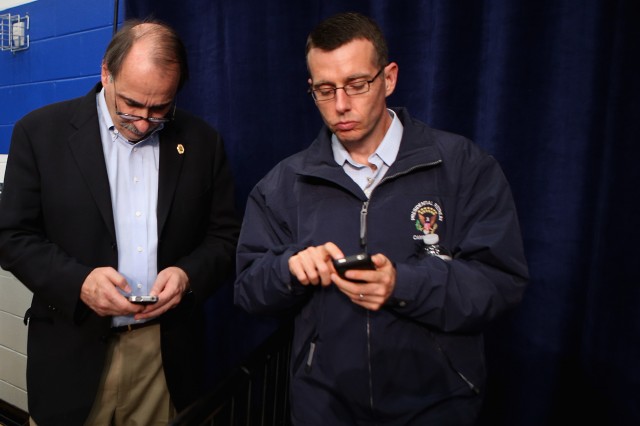Eric Goldman, director of the High Tech Law Institute at Santa Clara University, said the company's move is part of a strategic shift throughout the technology industry.
"For a long time, tech companies had the attitude that they would ignore government and hope that government ignores them," Goldman said. "But we're seeing the emergence of a class of companies that can't ignore government. They have to navigate through a regulatory minefield."
Here's The New York Times' brief review of Plouffe's resume:
A pioneer in the art of using technology and multiple sources of data to target messages to voters, Mr. Plouffe has deep and longstanding ties to President Obama; he managed his 2008 campaign for the White House and served in his White House from 2011 until early 2013. Even from outside the West Wing, Mr. Plouffe has remained one of Mr. Obama’s closest confidants, dispensing advice on a wide range of issues.
Mr. Plouffe also has experience in the private sector. After the 2008 campaign, he advised companies including Boeing and General Electric and gave paid speeches to groups and companies around the globe.
He was summoned back to the White House in 2011 to serve as Mr. Obama’s chief political adviser as the president retooled to face a divided Congress and geared up for his re-election bid. Since leaving the administration last year, Mr. Plouffe has served as a commentator on Bloomberg TV and ABC News.
In his statement, Kalanick said, "I’ve come to realize we are in the middle of a political campaign" against the taxi industry.
That campaign has surfaced in battles with regulators in many cities across the country, including San Francisco, and in California and many other states. Uber and ride-service competitors Lyft and Sidecar have been increasingly active in Sacramento as the Legislature considers a series of bills that would impact their operations.
California Secretary of State records show the three companies have reported spending a total of $480,000 in lobbying since the beginning of 2013. Most of that spending is going to defeat a series of measures that would impose new operating conditions on the ride services, which have been defined as "transportation network companies" by the California Public Utilities Commission.
Among the measures targeted: AB612, which would set new requirements for driver background checks, among other provisions, and AB2293, which would impose more stringent insurance requirements on Uber and competitors. Both bills are currently under consideration in the state Senate.
The ride-service industry's spending appears to far outstrip what the "Big Taxi cartel" has spent since the beginning of last year. The Taxicab Paratransit Association, a persistent critic of what it has called lack of regulation for the ride-service companies, has spent about $32,000 on lobbying during the last 20 months, according to filings with the secretary of state. LiftPAC, the association's political action committee, reports donating about $25,000 to a total of 15 legislators since June 2013.
One stat we haven't pried out of the secretary of state's database yet: How much personal injury lawyers and the insurance industry, which have a stake in AB2293, might have spent on lobbying on the bill. We'll update this report when we have that information.
KQED's Ted Goldberg contributed to this post.
